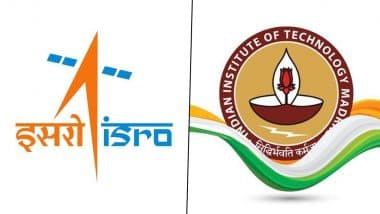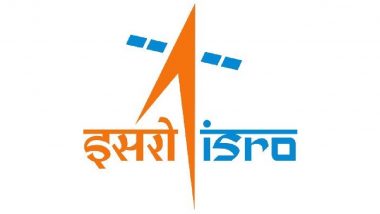Sriharikota, July 23: The Indian Space Research Organisation (ISRO) successfully launched India's second moon mission Chandrayaan 2 on Monday at 2:43 pm. In this lunar mission, the heavy-lift rocket GSLV-MkIII, nicknamed 'Baahubali', carried Chandrayaan 2 to the Earth's orbit, from where it will travel to the moon. The Chandrayaan 2 spacecraft will land a rover near the unexplored lunar southern pole. The Rs 978 crore Chandrayaan-2 project will take 48 days to complete the task of landing on the Moon. Do you know where is Chandrayaan 2 now after yesterday's launch and how and when it will reach the Moon? Here's a complete explanation of the path of India's second moon mission. Chandrayaan 2: From What's at Stake to Launch Time and Cost, Know About India's Second Mission to Moon.
It is one of the most prestigious missions ever undertaken by ISRO since its inception. Chandrayaan 2 will make India the fifth country to soft-land on the lunar surface after Russia, the United States, Japan and China. The spacecraft used in the mission has three distinct parts: an orbiter, a lander and a rover. The orbiter weighs 2,379kg (5,244lb) will take images of the lunar surface. Chandrayaan 2 Explained! When Will ISRO's GSLV-Mk III Reach Moon And What Will Happen After That?
Here is a detailed look at the path which Chandrayaan 2 will take to reach the Moon during its 48-day tour.
- About 16-minutes into its flight, the Rs 375-crore GSLV-Mk III rocket slung the Rs 603-crore Chandrayaan-2 into its 170x39,120-km orbit.
- For the first 17 days from its liftoff and till Day 23, the spacecraft will be in Earth-bound phase before its orbit is finally raised to over 1.05 lakh km.
- From Day 23-30, it will nudge into the Lunar Transfer Trajectory, thus taking it to the proximity of the moon
- On Day 43, it will be brought to 100 X 100 km circular orbit when the lander will separate.
- Over the next few days of orbiting, the decent will start and it is expected to make a soft landing on the Moon on Day 48.
According to a BBC report, in order to save fuel, ISRO has chosen a circuitous route to take advantage of the Earth's gravity, which will help slingshot the satellite towards the Moon. India does not have a rocket powerful enough to hurl Chandrayaan-2 on a direct path.
Chandrayaan 2: Where Is The Spacecraft Now & When It Will Reach The Moon; Know ISRO Mission's Path
ISRO has sent up three GSLV-Mk III rockets so far. The first carried Crew Module Atmospheric Re-entry Experiment in December 2014. The second and third GSLV-Mk III carried communication satellites GSAT-19 and GSAT-29 in February 2017 and November 2018 respectively. GSLV-Mk III will also be used for India's manned space mission in 2022.
The Mission was aborted on July 15 by ISRO due to a technical snag that was identified an hour before its launch. However, the glitch was soon fixed and Chandrayaan 2 was successfully launched on July 22, with ISRO stating that the lift-off was "better than they had expected". If Chandrayaan 2 finds water on the south pole, which is the dark side of Moon, it will be a huge achievement and a moment of great pride for ISRO scientists who've worked day and night on the mission.
(The above story first appeared on LatestLY on Jul 23, 2019 01:21 PM IST. For more news and updates on politics, world, sports, entertainment and lifestyle, log on to our website latestly.com).













 Quickly
Quickly






















